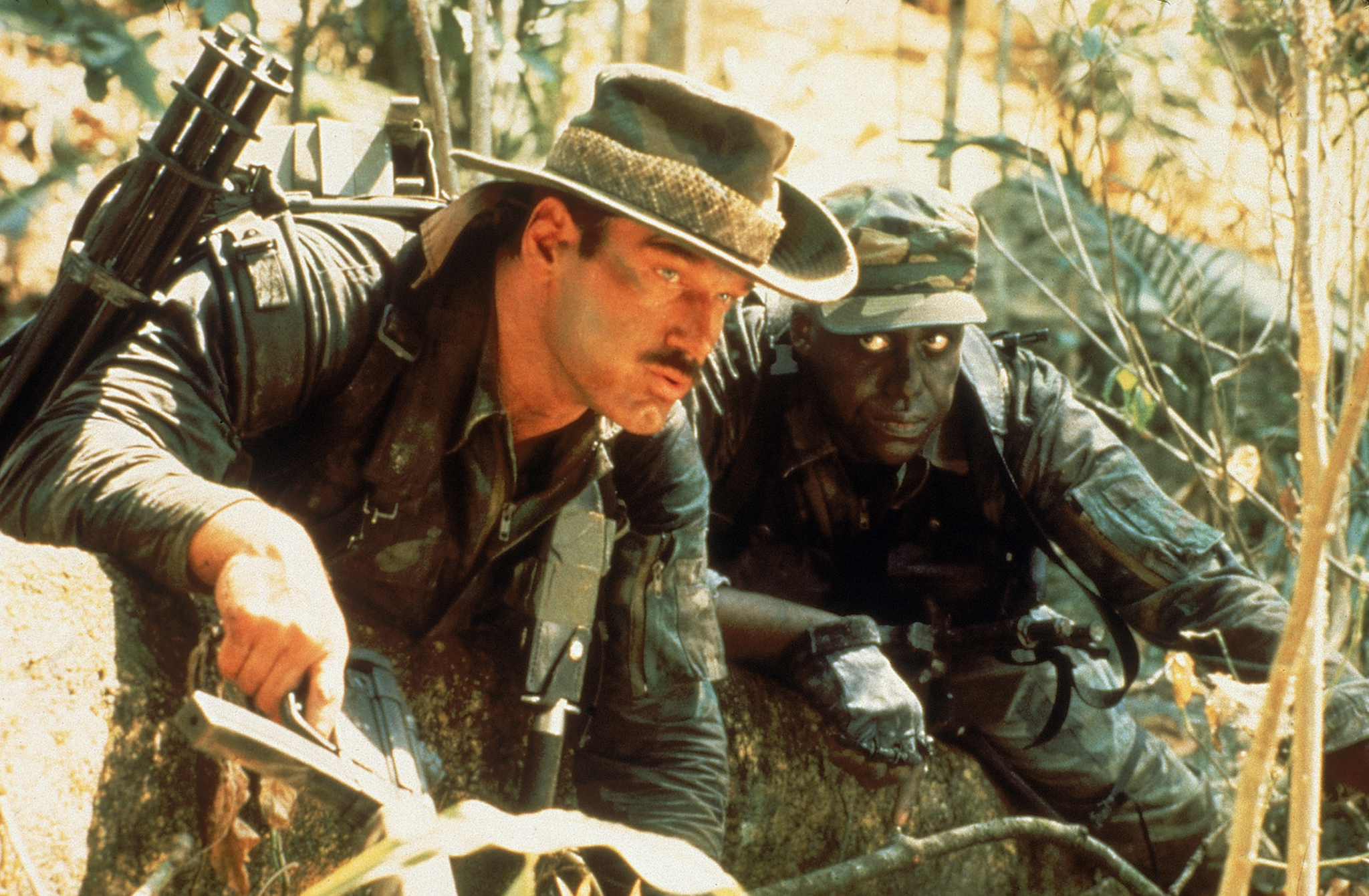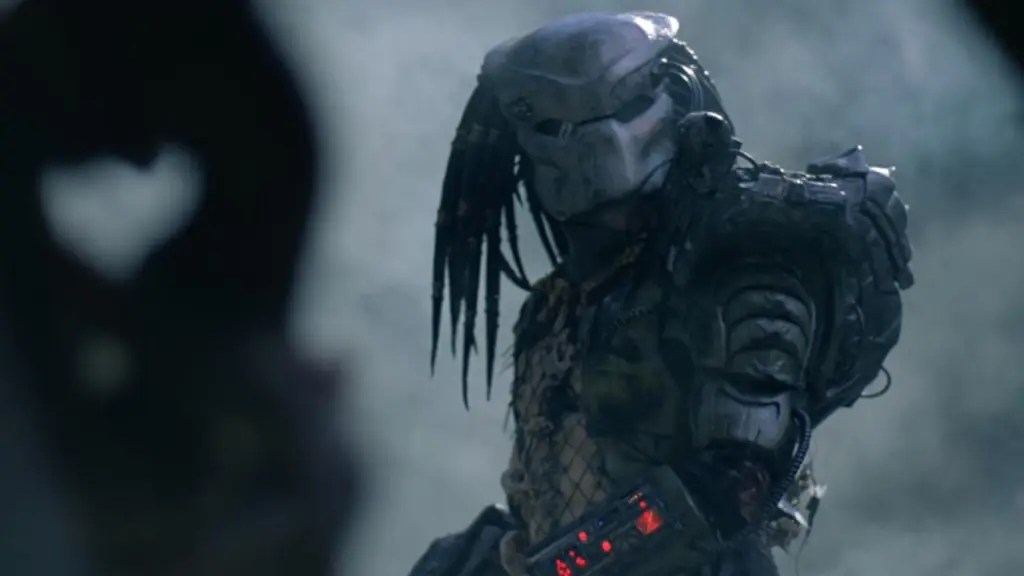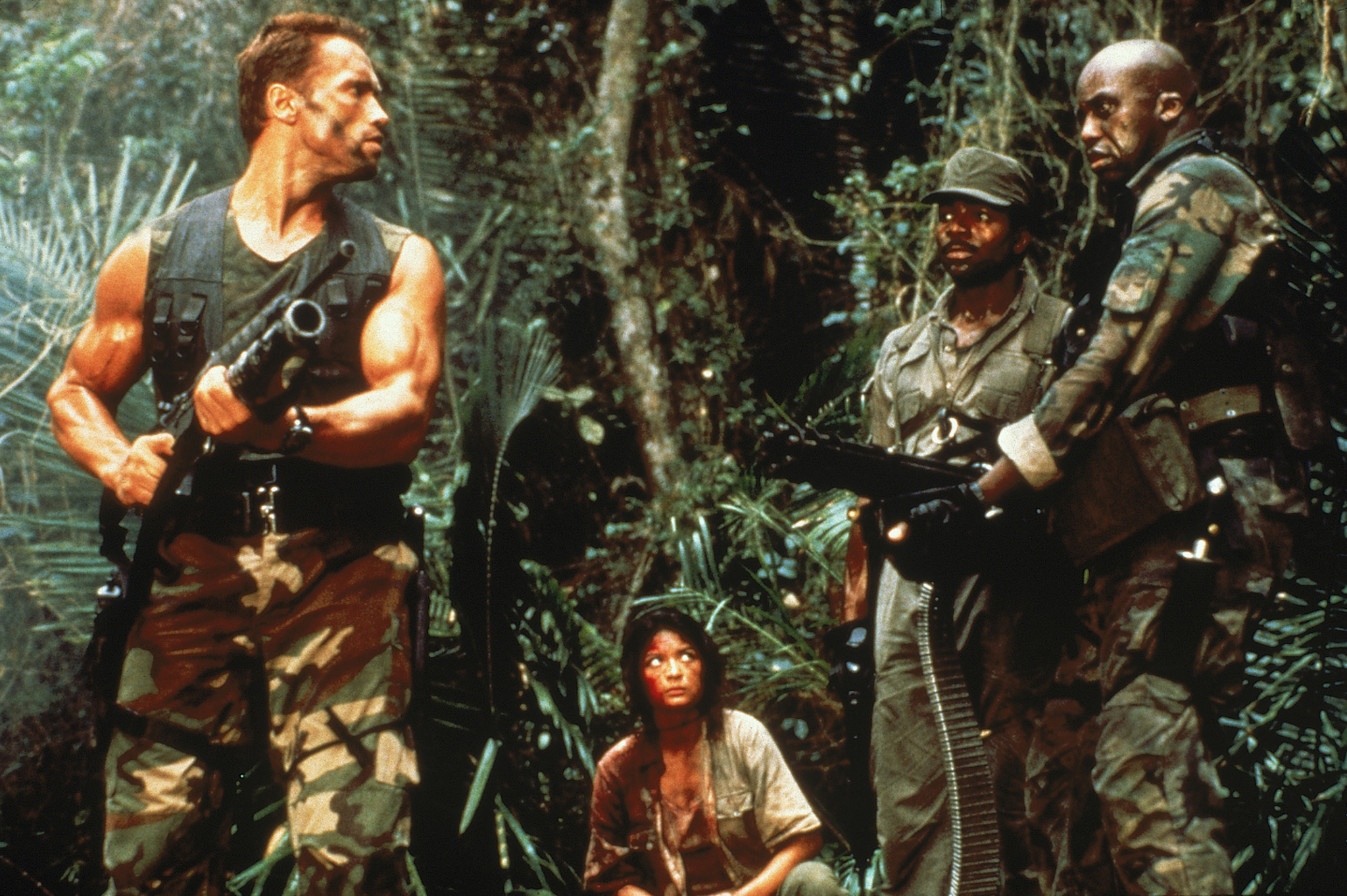Predator (1987)

Film Review: Predator (1987)
John McTiernan’s Predator is a masterclass in blending action and science fiction, offering a tense, adrenaline-fueled narrative set against the unforgiving backdrop of the Central American jungle. Released in 1987, the film stars Arnold Schwarzenegger as Major Alan “Dutch” Schaefer, leading a team of elite soldiers who become prey for an extraterrestrial hunter. With its iconic antagonist, intense action sequences, and memorable one-liners, Predator has become a cornerstone of 1980s cinema.
Plot Overview
The story begins with Dutch and his team of commandos being sent on a rescue mission in the Central American jungle. What initially appears to be a routine operation quickly escalates into a nightmare when they discover mutilated corpses and signs of an advanced, otherworldly predator.
As the alien systematically hunts the soldiers using its advanced technology and ruthless tactics, Dutch and his team must rely on their wits and survival skills. The predator’s motivations become clear—it hunts not for sustenance, but for sport, targeting those who pose a challenge. The film builds to an explosive finale as Dutch faces the predator in a primal, one-on-one battle of wits and strength.
Themes and Symbolism
Predator explores themes of survival, masculinity, and the clash between nature and technology:
- Survival and Instinct: The film is a study of survival, pitting highly trained soldiers against an apex predator. Dutch’s reliance on primitive tools and tactics in the final showdown underscores the importance of adaptability and instinct.
- Masculinity and Brotherhood: The camaraderie and bravado of Dutch’s team highlight 1980s notions of masculinity, but their vulnerability against the predator challenges traditional perceptions of invincibility.
- Man vs. Nature: The predator represents a force of nature that cannot be easily outsmarted or overpowered, emphasizing humanity’s fragility in the face of the unknown.
Characters and Performances
- Arnold Schwarzenegger delivers a commanding performance as Dutch, balancing physical prowess with a calculated determination that makes him a compelling protagonist. His iconic line, “If it bleeds, we can kill it,” epitomizes the film’s mix of tension and bravado.
- Carl Weathers as Dillon, Dutch’s former ally turned CIA operative, brings depth and conflict to the team dynamic, embodying the moral ambiguity of their mission.
- Bill Duke, Jesse Ventura, and Sonny Landham each bring unique personalities to their roles as commandos, creating a memorable ensemble cast.
- Kevin Peter Hall as the Predator delivers a physically imposing and menacing performance, brought to life through Stan Winston’s groundbreaking creature design.
Visuals and Direction
John McTiernan’s direction makes full use of the jungle setting, transforming it into a living, breathing antagonist. The dense foliage, oppressive heat, and constant sense of being watched amplify the film’s tension.
Stan Winston’s creature design for the predator is legendary, with its dreadlocked appearance, thermal vision, and high-tech weaponry becoming instantly iconic. The practical effects, including the predator’s cloaking device and its gruesome method of trophy collection, remain impressive even by today’s standards.
Action and Suspense
Predator masterfully balances action and suspense. The initial firefights showcase the team’s prowess, but the film shifts gears as the predator begins its hunt, building tension through its unseen presence. The final act, where Dutch uses his ingenuity to trap and confront the predator, is a testament to McTiernan’s ability to craft a climactic and satisfying showdown.
Sound and Score
Alan Silvestri’s score heightens the film’s atmosphere, combining pulsating rhythms with suspenseful crescendos. The iconic percussive motif mirrors the relentless pace of the predator’s hunt and Dutch’s fight for survival.
The sound design, from the predator’s eerie clicking noises to its distorted mimicry of human voices, adds an unsettling layer to the film’s atmosphere.
Criticism
While Predator is widely celebrated, some critics have pointed to its thin plot and reliance on genre tropes. However, these elements are integral to its charm, allowing the film to focus on delivering a visceral and immersive experience.
Legacy
Predator has left an indelible mark on popular culture, spawning a franchise that includes sequels, spin-offs (such as the Alien vs. Predator series), and a dedicated fanbase. The predator itself has become one of the most recognizable creatures in science fiction, influencing countless films, video games, and other media.
The film’s blend of action and sci-fi horror, along with its memorable quotes (“Get to the chopper!”), ensures its place as a classic of 1980s cinema.
Conclusion
Predator is an electrifying mix of action, suspense, and science fiction that remains as thrilling today as it was upon release. Anchored by Arnold Schwarzenegger’s iconic performance and featuring one of cinema’s most unforgettable monsters, the film is a testament to the power of creative storytelling and innovative design.
Whether you’re revisiting it for nostalgia or experiencing it for the first time, Predator offers a gripping, edge-of-your-seat adventure that continues to stand the test of time.










